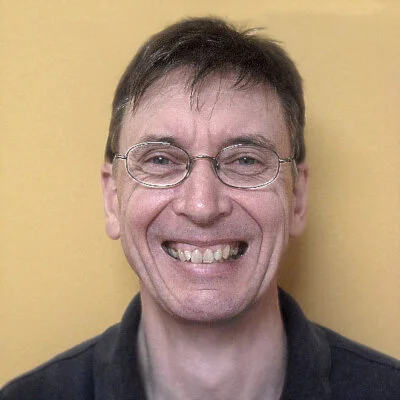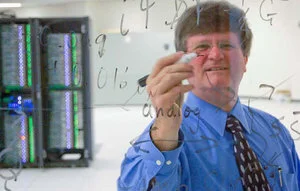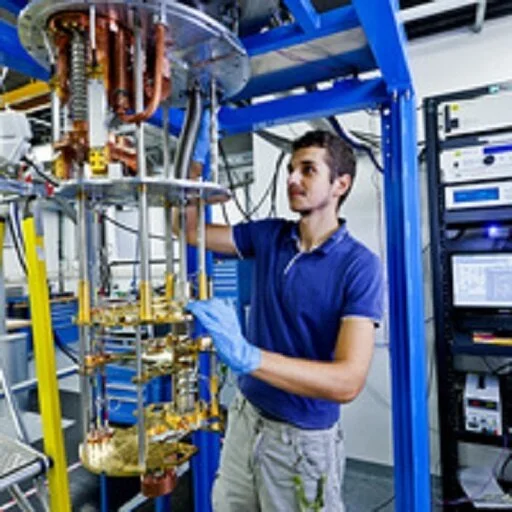Professor Darren Croton is a theoretical and numerical astrophysicist, focusing on the formation and evolution of galaxies, the role of dark matter and dark energy, and the large-scale structure and cosmology of our Universe, using both supercomputer simulations and large observational data sets.
As Centre Director, Professor Barberio will be responsible for the Centre’s overall strategic direction and operations, with advice from the relevant Centre committees.
Professor Nicole Bell is an international leader in particle and astroparticle physics. She has broad expertise in dark matter phenomenology spanning direct detection, indirect detection, collider searches, astroparticle physics and cosmology.
Astroparticle physicist, Professor Céline Bœhm has worked in the UK, France, and Switzerland before her appointment in 2018 as the (second female) Head of School of Physics, University of Sydney.
An esteemed and leading particle theorist, Professor Matthew Dolan has investigated Beyond the Standard Model physics for the past decade, making a number of important contributions to dark matter research in collider physics, direct detection and indirect detection.
Professor Alan Duffy is an experienced computational astrophysicist, running large-scale supercomputer simulations to test the growth of dark matter structures.
Professor Jeremy Mould is one of the world’s leading experts in astrophysics. He was previously Director of the Research School of Astronomy and Astrophysics at the Australian National University and the American National Optical Astronomy Observatory.
Professor Gregory Lane is an internationally recognised leader in nuclear structure physics, especially using the techniques of time-correlated gamma ray and electron spectroscopy for investigations of exotic nuclei.
Professor Cedric Simenel is an internationally recognised leader in quantum many-body approaches to describe low-energy nuclear dynamics. Whilst a theorist, he works closely with experimentalists in order to provide a strong synergy between these two aspects of nuclear physics.
Professor Andrew Stuchbery is widely regarded for innovation of experimental techniques to measure electromagnetic moments in radioactive nuclei.
With 35 years’ experience in Australia’s high-energy physics program- including 20 years at the forefront of Australia’s involvement with CERN- Professor Taylor will lend his expertise to the Direct Detection and LHC/ATLAS search aspects of the Centre’s work.
Professor Anthony Thomas has extensive experience in both nuclear and particle theory, with significant publications related to the detection of dark matter.
Associate Professor Stephen Tims has been the driving force behind the ANU AMS actinide measurement program for over 10 years.
Michael E. Tobar is currently a Professor of Physics at the University of Western Australia School of Physics. Notably, between 2009 and 2014, he was awarded a Laureate Fellowship by the Australian Research Council.
Professor Volkas is an internationally esteemed theoretical particle physicist, with particular expertise in model building- the construction of theories that extend the Standard Model of particle physics.
Professor Martin White co-leads the GAMBIT collaboration, an international team that performs global fits of beyond-Standard Model physics models, including models of dark matter.
Professor Anthony Williams is an internationally recognized leader in the field of theoretical nuclear and particle physics. He has the role of Deputy Director in the Centre as well as being the Adelaide Node Manager. He won the Boas Medal for his research in particle physics in 2001 and is a Fellow of the American Institute of Physics and the Australian Institute of Physics.
Dr Michaela Froehlich has a PhD in chemistry and significant experience in radiochemistry. She worked ever since in a multidisciplinary field and specialised on chemical isolation of rare isotopes from environmental matrices measured by Accelerator Mass Spectrometry.
Dr Maxim Goryachev is an established physicist with vast experience in low-temperature and condensed-matter physics, frequency measurement and control, low-noise and precision measurements, photonic and phononic low-loss systems, and paramagnetic and ferrimagnetic spin systems at low temperatures.
Associate Professor Gary Hill is an accomplished astrophysicist in the area of high-energy neutrino detection, with expertise in low-signal/high-background data analysis.
Professor Paul Jackson is an experimental particle physicist specialising in searches for beyond the Standard Model physics, primarily using detectors situated at particle colliders.
Professor Phillip Urquijo is a leading experimental particle physicist, with considerable experience in the management of large physics experiments, and is involved in the development and construction of SABRE South and data analysis tools for experiments at SUPL.























